Gas supply to 12 petrochemical plants in Iran cut off, official says
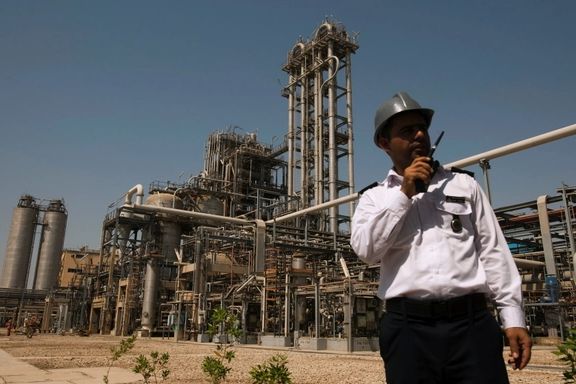
Amid Iran's winter energy crisis, natural gas supplies to 12 petrochemical plants have been suspended due to high residential demand, an Iranian official announced Saturday.

Amid Iran's winter energy crisis, natural gas supplies to 12 petrochemical plants have been suspended due to high residential demand, an Iranian official announced Saturday.
"If residential consumption drops by just 10%, more gas can be directed to industrial units," said Ahmad Mahdavi Abhari, Secretary General of the Petrochemical Industry Employers Association. He made the remarks during a signing event between the National Petrochemical Company and two petrochemical facilities.
Mahdavi also criticized the Ministry of Oil for delays in finalizing investment contracts for petrochemical companies in the upstream gas sector. He urged the government to expedite these agreements to support the industry during this critical time.
Meanwhile, Oil Minister Mohsen Paknejad said on Wednesday that Iran needs $45 billion in investment to tackle its persistent winter energy shortages and worsening air pollution.
The funds are vital for boosting gas production to meet the targets outlined in Iran's long-term development plan, which informs the country's budgets and industrial policies.
"According to the Seventh Development Plan, gas production must reach 1.4 billion cubic meters per day," Paknejad said. "To achieve this goal, $45 billion of investment is required."
He added that most of the funding must be directed toward developing gas fields and upgrading related infrastructure. However, he did not mention Iran's difficulty in securing advanced Western technology for boosting gas extraction at its main fields in the Persian Gulf.
Successive Iranian governments have struggled to cope with rising consumption, particularly during the colder months when power plants often rely on polluting fuels, further exacerbating air quality issues in urban areas.
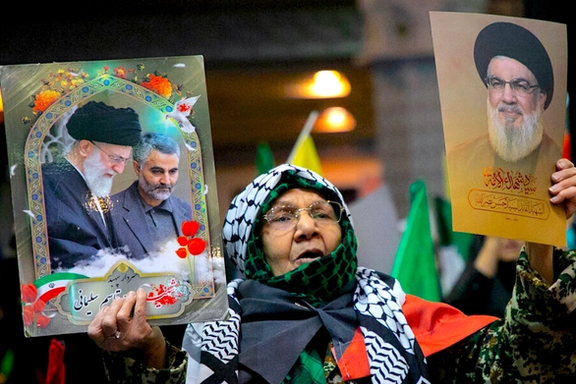
At the start of 2024, Iran appeared to be riding high: ever closer to the threshold of nuclear weapons, its regional allies harassed Israel on multiple fronts and its Yemeni acolytes the Houthis choked commercial traffic from the Red Sea.
85-year-old Iranian Supreme Leader Ali Khamenei's method of projecting power abroad and tightening his grip at home appeared to be working.
What a difference a year makes.
Tehran's affiliates Palestinian Hamas and Lebanese Hezbollah have been decimated by Israel while Islamist rebels hostile to Iran toppled Syria's Assad dynasty, a key ally.
Iran is now adrift in a decisive year, Kamran Matin, an international relations scholar at the University of Sussex told the Eye for Iran podcast.
“All of this has come together and created a very difficult environment for the Islamic Republic, all of which is even more difficult to deal with in light of the Supreme leader's deteriorating health and his age,” said Matin.
Iran’s regional and international strategy is closely tied to how it can control and shore up influence domestically.
Part of the modus operandi of the Iranian system is to blame domestic troubles on sanctions and regional conflicts, promising that investment in nuclear infrastructure and militant proxies can buttress its standing in a dangerous neighborhood.
That rationale, Matin said, has evaporated and the mystique of Iran’s regional strength has lost its luster.
There have been 54 anti-government protests in Iran since Dec 26 and Jan 2 of this year according to the Foundation for Defense of Democracies (FDD), a Washington DC-based think tank critical of the Islamic Republic.
Iran now faces a sobering realization of its diminished stature.
Race for a deal, or the bomb?
Up against deepening economic malaise as Iran’s currency slips to new lows, an energy crisis which has stoked protests and the loss of regional muscle which deterred enemies, Iran’s rulers now have limited options.
They are at a crossroads, with each path presenting huge risks: race toward a nuclear bomb as an ultimate security guarantee or make concessions to President Donald Trump and compromise the state's very raison d'etre as a scourge of empire.
The answer may hinge on Trump’s plan for Tehran, a country that according to American intelligence has allegedly plotted to kill him.
The president-elect, who has surrounded himself with Iran hawks for his next administration has suggested bombing Iran into “smithereens" for the alleged assassination attempt.
At the very least, Trump will likely apply maximum pressure and more economic sanctions on an already crippled economy, which would squeeze Iran's rulers further.
“It's unclear how Iran is able to negotiate with some sort of strength to be able to extract any concession from the United States and Western powers,” said Matin.
Iranian officials and state media Iran moot talks with Trump more eagerly, tamping down their former rhetoric of resistance and confrontation.
That could signal fear amongst the ruling elite and an understanding of their weakened position, said Matin.
In a speech last month after the collapse of Assad, Iran’s Supreme Leader Ayatollah Ali Khamenei addressed a somber crowd, blaming Israel and the United States for Iran not intervening to save its ally.
“Khamenei basically declared this impotence that American and Israelis had closed all the roads and so on and so forth,” said Matin on the speech, which was devoid of Khamenei's usual affirmations of strength.
The last standing in the Axis of Resistance - the Houthis
The Islamic Republic's woes may mean an opening for the Americans like never before that could force Iran to bargain away its regional satrapies, or face attack.
“Trump is much more willing to take on Iran, given how Israel has basically neutralized Iran's proxy forces,” said Matin on the changing tides.
Yemen's Houthis, Iran's last relatively robust military ally, will likely be a priority.
The Iran-backed group has fired drones and missiles towards Israel frequently for over a year, describing it as an act of solidarity with Palestinians in Gaza.
The Washington Institute for Near East Policy's Maritime Attack Tracker recently tallied 106 confirmed Houthis strikes on shipping since November 2023.
"There have been many more attacks recently on (the Houthis) by Israel and the US-led coalition," Matin said.
"So it may well be that they will also be pacified over time, especially if Iran itself is weakened. And maybe one of the elements in the future talks between Iran and the US would be Iran stopping its supply of advanced weapons to Houthis."
Indirect impact of Trump: a loss of Russia for Iran?
The return of president-elect Trump to the White House will likely mean yet more bad news for Iran’s Islamic establishment.
One of Trump’s first goals is to fulfill his promise to end the war in Ukraine.
If Trump follows through as he is forecasted to, Iran will lose leverage with key ally Russia, another partnership that helped it project power on the world stage.
That would lead to another major blow to the Islamic Republic.
“Russia is likely to restore its damaged relations with the West, with the United States in particular," Matin said. "That also means in turn that Russia does not necessarily need to accommodate Iran's demands or needs in order to keep Iran on board in terms of supplying drones and other weapons to Russia to be used in Ukraine.”
Ukraine's foreign ministry in early September said Russia had launched 8,060 Iran-developed Shahed drones at Ukraine since 2022, according to a Reuters report.
Syria, formerly an Iranian satellite state, was another issue binding Moscow and Tehran.
"Both of them were involved supporting Assad regime. Neither of them are there anymore. What really binds Iran and Russia together is this wider tension each of these countries have with the West, with the United States,” Matin said.
It seems with Iran's dwindling influence, domestic unrest and battered allies throughout the region, 2025 is poised to be a decisive year for Tehran.
To watch the full Eye for Iran episode with Kamran Matin, click on YouTube or listen on Spotify, Apple, Amazon, Castbox or any other major podcast platform.
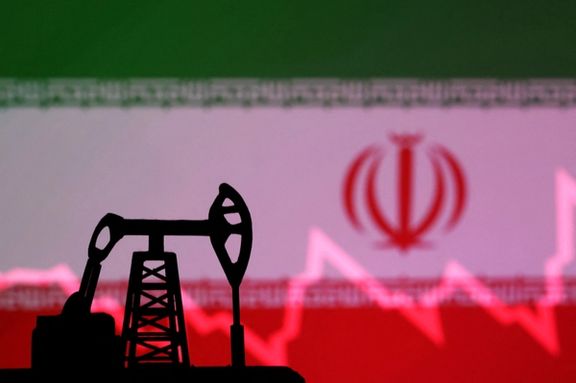
Iran has exported nearly 1.98 billion barrels of oil over the past four years since US President Joe Biden took office, United Against Nuclear Iran (UANI) said in its annual Tanker Tracker report released on Friday.
Despite ongoing US sanctions, Iran increased its output by more than 10 percent in 2024, according to the US-based advocacy group.
China continued as the largest importer, receiving 533 million barrels, up 24% from the previous year, accounting for 91% of Iran’s total exports.
The shift towards Iran's National Iranian Tanker Company (NITC) for direct loadings marked a significant change in Iran's oil export strategy. Previously, foreign-flagged vessels were commonly used to transport oil directly from Iranian ports, circumventing sanctions.
"In 2024, Iran relied more on its NITC fleet for direct loadings, departing from past practices where foreign-flagged vessels often carried oil directly from Iranian ports," UANI said, adding that it has identified 132 new vessels smuggling Iranian oil, raising the total to 477.
The organization emphasized the need for stronger action against companies enabling the evasion of sanctions, with a focus on prosecuting tanker captains involved in illicit activities.
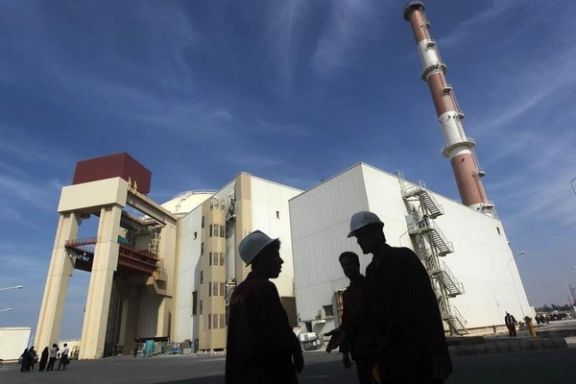
Iranian Foreign Minister Abbas Araghchi on Friday expressed Tehran's readiness for renewed talks with world powers aimed at breaking the long-standing deadlock over its disputed nuclear program.
The remarks were the among the clearest yet signaling that Iran, faced with a bevy of economic and military setbacks, sought to ease isolation due to intensify under a second presidency of Donald Trump through talks.
Negotiations should be aimed "at reaching an agreement," Araghchi said in an interview with China's state-run CCTV network.
“The formula we have is the same as the previous JCPOA formula, which is building trust about Iran's nuclear program in exchange for the removal of sanctions. We are ready to negotiate on this basis," he added.
The Joint Comprehensive Plan of Action (JCPOA) is the agreement signed in July 2015 between Iran, the European Union and the five permanent members of the UN Security Council plus Germany---commonly known as the P5+1.
Britain, France, and Germany are set to begin a new round of talks with Iran over its nuclear program in Geneva on January 13.
The deal reached under US President Barack Obama was criticized by his successor Trump, who pulled out of the agreement, as too lenient on Tehran.
In an interview with Time magazine last month, Trump refused to rule out the possibility of war with Iran despite campaign statements opposing the use of force to overthrow Tehran's theocratic government.
When asked by a Time reporter about the likelihood of war, referencing allegations by US law enforcement that Iran had sought to assassinate him, Trump responded: "Anything can happen. Anything can happen. It's a very volatile situation."
Trump has also explored measures to stop Iran from developing nuclear weapons, including potential airstrikes, according to the Wall Street Journal.
UN nuclear watchdog chief Rafael Grossi said in December that Iran is dramatically accelerating its enrichment of uranium to up to 60% purity, closer to the roughly 90% level needed for building a bomb.
Tehran has consistently denied pursuing nuclear weapons, saying its program is peaceful.
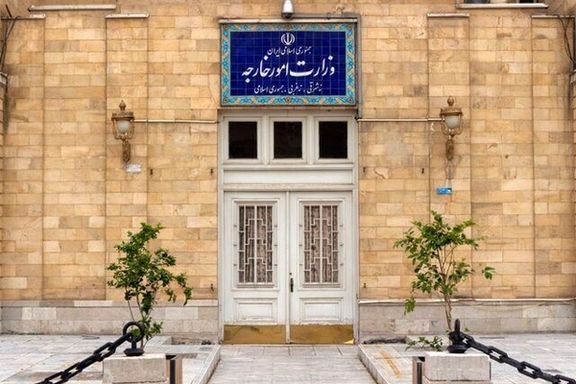
Iran's foreign ministry summoned Italy's ambassador to Tehran, Paola Amadei, on Friday to protest Italy's detention of Iranian citizen Mohammad Abedini, wanted by Washington on terrorism charges, and called the arrest illegal.
Majid Nili Ahmadabadi, director general for Western Europe at Iran’s foreign ministry, called the arrest illegal, saying it was carried out at the request of the US as part of its "hostile agenda" against Iran, according to state media.
Ahmadabadi warned that the detention harms bilateral relations and violates international law, urging Italy to facilitate Abedini's release. The Italian ambassador reportedly pledged to convey the message to Rome.
State media reports on the summons made no mention of Italian journalist Cecilia Sala, who has been detained in Tehran in a likely attempt to exchange her for Abedini.
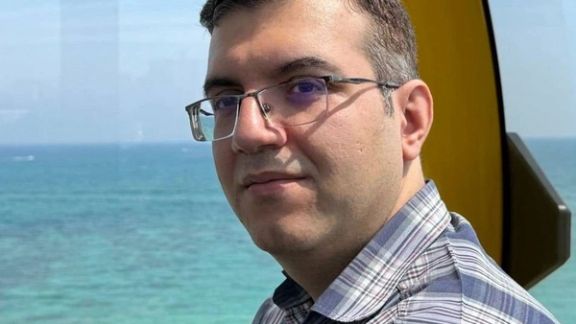
An Iranian detained in Milan who is wanted on terrorism charges by Washington said he would pray for himself and Italian journalist Cecilia Sala, jailed in Tehran.
"I will pray for her and for myself", Italian media quoted Mohammad Abedini Najafabadi telling his attorney during a meeting Friday at Milan's Opera prison.
Abedini, 38, was arrested by Italian authorities last month at the behest of the United States for his alleged role in providing technology used to kill three US soldiers in a drone attack in Jordan.
Three days after his arrest, Sala was arrested on unspecified charges and placed in solitary confinement in Tehran’s Evin prison despite working in the country on a valid press pass.
Tehran has informed Rome that Sala’s release is contingent on Italy freeing Abedini.
Milan’s attorney general, Francesca Nanni, denied Mohammad Abedini’s request for conditional release on Thursday, citing a high risk of flight.
An appeals court in Milan has scheduled a hearing for January 15 to consider Abedini’s attorney’s request to transfer him to house arrest instead of remaining in Milan’s Opera prison.